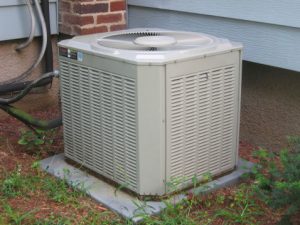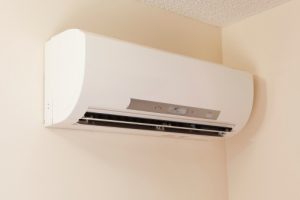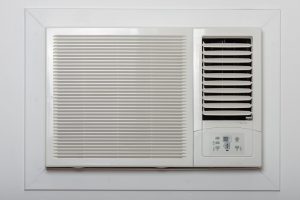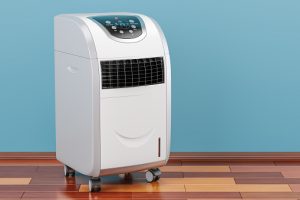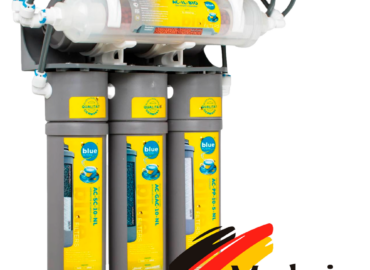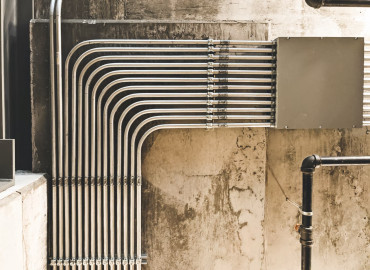Central Air Conditioner Buyer Guide 2022
In Canada, during summer temperature rises to 70-80℉, and it gets uncomfortably hot. An air conditioner is the only thing that helps you get through it. It keeps you cool by controlling the level of humidity and heat indoors. A central air conditioner provides the utmost comfort in comparison to any other air conditioner, especially in big homes.
The Central Air Conditioner takes heat from a place, where it is not desirable, to outside where it doesn’t bother anyone. A step-by-step guide simplifying the working of a central air conditioner is given below.
A thermostat is a control system that regulates the temperature in your home. As soon as the temperature rises, the thermostat senses it and sends a signal to other components of an air conditioner to start working
- On the signal, the refrigerant pulls hot air outside the house. Return air ducts carry hot air to the air handler
- The air is then filtered and passed over an evaporator coil. The liquid refrigerant converts to gas as it absorbs heat from the air
- The air passes over the coils and cools down. After the air has been cooled down, supply ducts carry it throughout the house
- The hot refrigerant gas moves to the compressor where it is pressurized and moved to the coil of the condenser
- A large fan further pulls air through the condenser’s coil and releases heat outside the house
- Refrigerant again converts to liquid. It travels back to the indoor unit through an expansion device that regulates its flow, and
- The cycle continues.
Now you know the science behind getting a desirable temperature in your home. Let’s discuss other details of central air conditioners – type, size, cost, brands, and more. This will give you comprehensive information for your next purchase.
What size central air conditioner do you need for your home?
A simple rule of thumb is 20 BTU (British Thermal Unit) per square foot. One ton produces 12000 BTU/hr. For 600 square feet, you need 12000 BTU (600*20), i.e. a one-ton central air conditioner. For 3000 square feet, you need 60000 BTU (3000*20), i.e. a 5-Ton Air conditioner. As per exposure to the sun, increase or decrease the capacity by 10%.
Recognized methods to find the right size central air conditioner
A thorough analysis by an HVAC expert is always better than a simple rule of thumb. An expert considers all the following factors before recommending a central air conditioner.
- Local climate conditions
- Number and size of windows
- Sun exposure
- Existing insulation levels of the home
- Number and lifestyle of occupants
- Predicted air exchange rate of home
The right size central air conditioner for your home is neither too big nor too small.
HVAC experts use a Canadian Standards Association (CSA) standard to determine the right size of equipment. The CAN/CSA F280-12 (R2021) “Determining the required capacity of residential space heating and cooling appliances” provides information on how to properly select the right equipment for your home.
How do you measure the capacity of a central air conditioner?
A general rule is that a one-ton air conditioner produces 12000 BTU/hr. There are 2 other ways to measure the capacity of your central air conditioner. They give you more accurate information.
Determine the size from the model number – If the tonnage capacity is stated then no further calculation is needed. Otherwise, refer to the part after 5 characters. It tells you the nominal size. For example, 036 means the air conditioner has a nominal capacity of 36,000 BTU/hour.
AHRI Directory – You can find the capacity of a central air conditioner by inserting all the information into the AHRI directory. It is a tad bit more tedious than other methods. You have to fill in all the details, otherwise, the search will overwhelm you.
Benefits of the right size central air conditioner
It is beneficial to buy the right size central air conditioner after considering all the important factors. A few of those benefits are given below–
- Lower power bills
- Less frequent breakdowns
- Desirable indoor temperature
- Efficient and effective use of central air conditioner
What happens if you buy and install a central air conditioner of the wrong size?
As read above, you need to buy the right-size air conditioner after considering all the important factors. It not only ensures comfortable living but also lowers electricity bills. The wrong size can go either way, either too large or too small.
- Oversized central air conditioner – When you buy and install an air conditioner of higher capacity than needed. For example, you need a 3-ton air conditioner, but you buy a 5-ton air conditioner, just to be prudent.
- Undersized central air conditioner – When you buy and install an air conditioner of lower capacity than required. For example, installing a 2-ton air conditioner when you need a 4-ton.
Disadvantages of oversized central air conditioner
Apart from increased power consumption, an oversized central air conditioner has other disadvantages.
- High upfront cost – The first and foremost disadvantage is high upfront costs. Large-capacity central air conditioners cost more than smaller ones. Even before you install the unit you will be paying a higher amount.
- Excessive wear and tear – An oversized central air conditioner are likely to cool down the temperature faster. Hence, it will be starting and stopping frequently. Such frequent on & offs increase wear and tear of machinery.
- Increase in Humidity levels – An air conditioner not only reduces the temperature but also the humidity for comfort. It extracts the extra humidity from the air only if it runs for a reasonable time. Whereas an oversized central air conditioner runs in short cycles. Therefore, it won’t remove the humidity. It means your house will not be as comfortable as it would have been with the right-size air conditioner.
Disadvantages of undersized central air conditioner
You will never have a cool and comfortable house if your central air conditioner is too small. There will either be temperature issues throughout the house or in certain parts. Other disadvantages are as follows
- Higher power bills – A small air conditioner will try to cool a big area by running continuously. This will cause excessive consumption of energy and higher power bills.
- Excessive wear and tear – A small central air conditioner works continuously to maintain a certain temperature. It will not stop and get periodical rests to cool itself down. This will cause frequent breakdowns.
Signs your central air conditioner is of the wrong size
We read how important it is to have the right size central air conditioner. But, how can you identify that your existing air conditioner is of the wrong size? If you are facing any of the following issues, you have a wrong-size central air conditioner.
- Hot and cold spots around the house
- More than usual electricity bills
- Frequent breakdowns and repairs
- Continuously working air conditioner
- Higher humidity levels indoors
What type of air conditioner do you need?
Based on family size, square footage, ducting systems, and budget, every family needs a different air conditioner. Here’s a quick glimpse of which type of air conditioner is the right fit for different needs.
- Central Air Conditioner – If you have a large home and want to cool multiple rooms at once, a central air conditioner is probably the right fit for you. Central air conditioners are of two types.
- Split Central Air Conditioner – It is a traditional central air conditioning system where the air is distributed through ducts. The refrigerant circulates to expel the heat and dehumidify the air. The furnace blower circulates the cool air in the home. Evaporator coils are installed near the air handler. The most cost-efficient cooling solution is integrating a split central air conditioner with a furnace.
- Packaged Central Air Conditioners – In a packaged central air conditioner, both condenser and evaporator are usually outside the home. Warm air is pumped to the packaged air conditioner located outside the home. It cools the air and returns it to the home.
- Ductless Split Air Conditioner – If you want different temperatures for different rooms, ductless split air conditioners are a great choice. No need for expensive ductwork.
- Window Air Conditioner – It is suitable to cool a single room or small area. It is installed in a window. It contains a filter that can be easily cleaned for efficiency.
- Portable Air Conditioner – It is similar to a window air conditioner but is a free-standing unit. It can be moved easily from one room to another. It is useful for areas where it is difficult to install a window or ductless split air conditioner. Find out the best portable air conditioner in Canada.
If you looking to install or service your air conditioner in Toronto, we got you covered.
Types of Central Air Conditioners
Before you buy a new central air conditioner, you must have questions like
- Whether single-stage, double-stage, or variable speed central air conditioner?
- Difference between single and variable-speed air conditioners?
- Are variable-speed central air conditioners worth the money?
Here we answer all these questions.
- Single-Stage Central Air Conditioners – These air conditioners work at one speed. Whenever it gets warm in your home, it runs at full speed, cools everything down, and turns off. It turns on and off many times a day. Such frequent small cycles cause excessive wear and tear.
- Double-Stage Central Air Conditioners – They lie between single and variable-speed air conditioners. They run at full capacity when you need it and at a lower level when you don’t. They run less continuously than variable-speed air conditioners. They also have on-and-off cycles but are less frequent than single-stage ones.
- Variable-Speed Central Air Conditioners – They run continuously and rarely turn off. When your house reaches the desired temperature level, they work at a very low speed ( 25%). Since they work continuously, they dehumidify the air successfully and provide a comfortable environment.
Find the best Central Air Conditioner in Canada
Difference between single-stage, double-stage, and variable-speed central air conditioners
| Single-Stage Central Air Conditioners | Double-Stage Central Air Conditioners | Variable Speed Central Air Conditioners |
| Work at one speed | Work at two speeds (high and low) | Work continuously in a complex way |
| Short cycles – turn on and off frequently | Cycle longer than single-stage, but shorter than variable speed | Long cycles, rarely turn off |
| Poor dehumidification | Dehumidify air better than single-speed air conditioners | Dehumidify air successfully |
| Lower initial cost | Costs more than single-stage air conditioners | High initial cost |
| Poor energy usage | Better energy use | Use energy judiciously |
| Great for smaller homes | Good for multi-story homes | Good for large homes |
Factors to consider before buying a central air conditioner
As far as comfort goes, a central air conditioner has no comparison. Once you have decided on the type of air conditioner, consider the following factors before locking down any model of a central air conditioner.
Energy Efficiency
An efficient central air conditioner consumes less energy. Therefore, it is less costly to operate. Energy efficiency is measured in two ways:
- Seasonal Energy Efficiency Ratio (SEER) – It is calculated by dividing the total amount of heat removed (measured in BTUs) by the total amount of energy consumed (measured in watt-hours) by the air conditioner. A higher ratio means better efficiency. A unit with a 14.5 or higher ratio will have an Energy Star Rating.
- Energy Efficiency Ratio (EER) – It is calculated to measure the efficiency of an air conditioner at its peak cooling time. A higher ratio means better efficiency.
You can find Energy Star products in the Non-AHRI and AHRI directories.
Size
Instead of relying on a rule of thumb, trust an expert who uses CAN/CSA F280-12 (R2021) “Determining the required capacity of residential space heating and cooling appliances” to measure the cooling loads and needs of a house.
Ductwork
For installing a traditional central air conditioner, you need proper ductwork. If your home already has HVAC ductwork in place or you have the budget for it, take advantage. Otherwise, choose a ductless air conditioning system.
Sound
The sound rating of an air conditioner is measured in Bels. The lower the sound rating, the lower noise emitted by a unit. It’s better to choose a central air conditioner with a sound rating of about 7.6 Bels or lower. You don’t want your air conditioner making noises after you buy it, so look up their sound decibels.
Life Expectancy and Warranty
Usually, a central air conditioner’s life expectancy is 15 years or more. In case of frequent issues, check whether you need to replace a part of the entire system. The warranty varies from manufacturer to manufacturer. Warranties for air conditioners range from one year for parts and labor to five years for the compressor. Some manufacturers offer a 10-year warranty on their compressors. Make sure you fully understand the terms of a warranty before buying a central air conditioner.
Best central air conditioner brands in Canada
Once you decide on the type of air conditioner, the next step is to choose the brand. Below is a list of the best central air conditioners brand in Canada.
Lennox
Lennox central air conditioners deliver one of the most energy-efficient central air conditioners in Canada. Its high efficiency helps you save hundreds of dollars annually in utility costs. Some ENERGY STAR-certified central air conditioners may even qualify for energy rebates. Generally, SEER ratings for Lennox air conditioners are higher than the competitors. A Lennox air conditioner costs between $2000 and $5000 (plus installation fees), depending on its size.
Carrier
Carrier is a household name and an industry leader in central air conditioners. It currently provides HVAC in over 170 countries worldwide. It also offers a great warranty. A Carrier air conditioner costs between $1750 and $2400 (plus installation fees), depending on its size.
Goodman
Goodman is one of the popular brands in heating, ventilation, and air conditioning products. For years, it has been offering innovative, energy-efficient, and highly durable products. It offers a variety of products. You can choose as per square footage, family size, and other factors. A Goodman Central Air Conditioner offers good quality at a reasonable price.
Trane
Trane is very popular for its HVAC products. Its products are known for extended warranties and long life. It’s a mid-range option for efficient central air conditioners. It offers great customer service and financing options for homeowners.
Rheem
Rheem offers great features, prices, and warranties on its central air conditioners. It makes the company one of the best central air conditioner brands in Canada. It is a good mid-range brand for HVAC units. All of their models have ENERGY STAR certification, making it one of the top heating and cooling manufacturers in Canada. Rheem central air conditioners are undoubtedly a good investment.
How much does it cost to buy a central air conditioner in Canada?
Central Air Conditioners’ costs vary per brand, area, and square footage. Some of the factors that affect the cost of central air conditioners to install are as follows.
Brand
Your cost for central air conditioners depends on their brand. Brands like Goodman offer quality at a lower rate than competitors. Trane and Rheem make excellent mid-range air conditioners. Lennox and Carrier fall into a high-range brand. The price range may vary as per the model of each brand.
Model
Generally, companies manufacture a range of products to cater to different market segments. The cost of your central air conditioner will vary as per different models. It is always better to choose an Energy Star Certified Model. You may have to pay a bit higher upfront cost, but the savings in terms of energy bills will make it worth it. Click here to find Energy Star Central Air conditioners for 2022.
Installation and maintenance
Installation and maintenance expenses should also be considered while choosing a central air conditioner. Labor charges vary from company to company. You can also avail government rebates on energy-efficient products. Click here to find more on rebates.
Find out how much it cost to install an air conditioner.
Operating Cost
Before buying a central air conditioner, you may want to calculate the annual cost of operating it to determine whether it is worth the investment. It will help you in comparing its cost and cooling capacities before making a purchase decision.
As per NRCAN, the method for calculating the operating cost of a central air conditioner is
Cost of operation = (24 x DDc·18 / TOD – 18) x (CAP (35°C) / SEER) x (Cost/kW/1000)
Where,
- DDc·18 = number of cooling degree days (base is taken as 18°C)
- TOD = summer outdoor design temperature (°C) for location
- CAP (35°C) = air conditioner’s capacity (in Btu/h) at an entering air temperature of 35°C
- SEER = Seasonal energy efficiency ratio (Btu/h/W)
- Cost per kWh = local electricity cost (taken in $/kWh)
- All the above factors affect the cost of your central air conditioner. Consider them before making a purchase.
If you looking for a cheap solution, look at the best portable air conditioner in Canada.
Where can you buy a new central air conditioner in Canada?
Once you decide on the type, brand, and model of a central air conditioner and found the best central air conditioner, the only thing left is to buy it. It’s the last and most important step. You can ask for quotes from different local HVAC contractors/ dealers.
How to find local HVAC contractors?
You can refer to the brand’s website to find dealers in your area and contact them from there.
You can refer to consumer reports to find better-rated products.
You can also refer to government contractor locator websites, HRAI
As per NRCAN, pay utmost attention to the part of finding an HVAC contractor for your central air conditioners. Keep the following tips in mind
- The contractor should be qualified
- He should check the ductwork system to ensure it is designed to provide adequate airflow and distribution.
- He should provide complete information regarding the product and its SEER rating, and warranty
- Check customer reviews

